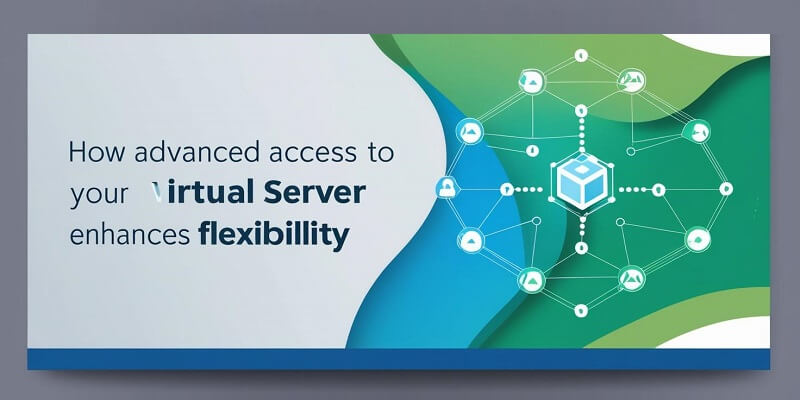Businesses increasingly rely on virtual servers to manage their data, applications, and networks. A virtual server, which is also known as a virtual private server (VPS), is a software-based emulation of a physical computer, offering flexibility, scalability, and cost-effectiveness. One of VPS’s most significant advantages is its advanced access to the server’s operating system and resources. This access empowers businesses to modify and optimize their server environments to meet certain needs, which is crucial for adaptability in the ever-changing tech landscape.

Increased Control Over Server Configuration
One of the primary ways in which advanced access to your virtual server enhances flexibility is by giving you full control over the server configuration. Unlike shared hosting, where the server resources are allocated among multiple users, a VPS allows businesses to have dedicated resources like CPU, RAM, and disk space. With full access to the server, you can install and configure any software, services, or tools that best suit your business needs. Whether you need to deploy a web application, configure a firewall, or manage user access permissions, having administrative control ensures that your virtual server is tailored to your specifications.
Seamless Installation and Customization of Software
Advanced access also allows for seamless installation and customization of software. For example, if your business requires a specific Linux mail server setup for handling email communications securely and efficiently, you can install and configure it as needed. This flexibility enables you to integrate various third-party applications, like content management systems (CMS), customer relationship management (CRM) tools, or even custom-built software, without the limitations imposed by pre-configured hosting solutions. Additionally, you can update and patch the software at your convenience, ensuring your server remains secure and up-to-date with the latest features and security fixes.
Better Scalability and Resource Management
As businesses grow, so do their needs for server resources. One of the key advantages of a VPS is its scalability. With advanced access to your virtual server, you can easily upgrade or downgrade server resources like CPU, RAM, and storage based on your business requirements. This scalability is vital for companies that experience fluctuations in web traffic or data processing demands. Instead of being stuck with a rigid, one-size-fits-all hosting plan, you can adjust your resources dynamically to match the demands of your business, ensuring both cost efficiency and optimal performance.
Enhanced Security and Privacy
Advanced access to your virtual server also offers a higher level of security and privacy. As the server administrator, you have the power to configure firewalls, set up encryption protocols, and restrict access to certain parts of the server. This is particularly important for businesses that handle sensitive information, such as customer data or financial records. With the ability to implement strict access control policies and monitor server activity, you can ensure that your server remains secure from external threats. Additionally, you can use advanced security tools to protect against malware, phishing, and DDoS attacks, providing an extra layer of defense for your business operations.
Flexibility in Hosting Multiple Services
Finally, with advanced access to your VPS, you gain the flexibility to host multiple services on a single server. Whether you want to host a website, a database, or a file-sharing service, a virtual server allows you to consolidate your infrastructure and reduce costs. This ability to host various services on one platform simplifies management and reduces the complexity of maintaining multiple servers. You can also experiment with different configurations to see what works best for your business, ensuring that your infrastructure evolves alongside your changing needs.




